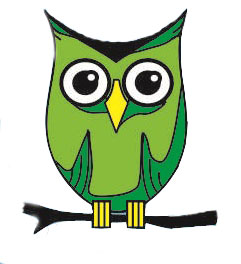The correlation between self-regulated learning and student learning outcomes in the ecosystem sub-concept
Abstract
The purpose of this study was to determine the relationship between self-regulated learning and student learning outcomes in the ecosystem sub-concept in class XI MIPA in the 2020/2021 school year. This research was conducted from August 2020 to September 2020 at one of the SMAN in Tasikmalaya City. The research method used is correlational with a population of all students in class XI MIPA with a total of 261 people. samples taken using simple random sampling technique, so this study took a sample of 7 people from each XI MIPA class with a total of 8 classes. The instruments used in this study consisted of 2 instruments, namely the Motivated Strategies for Learning Questionnaire (MSLQ) questionnaire instrument in the self-regulated learning section adopted from previous research and test instruments in the form of multiple choice questions on ecosystem sub-concept material totaling 36 items. The data analysis technique used is bivariate person correlation test with significance level (ɑ) = 5%. Based on the results of the study, it can be concluded that there is a relationship between self-regulated learning and student learning outcomes on ecosystem sub-concept material (R = 0.502). The contribution of self-regulated learning to learning outcomes is 25.2%.
Keywords
Full Text:
PDFReferences
Sudjana, N. Penelitian Hasil Proses Belajar Mengajar. (PT Remaja Rosdakarya, 2010).
Pintrich, P. R., Roeser, R. W. & De Groot, E. A. Classroom and individual differences in early adolescents’ motivation and self-regulated learning. J. Early Adolesc. 14, 139–161 (1994).
Rahayu, R., Yusmansyah & Utaminingsih, D. Hubungan antara regulasi diri dengan prestasi belajar siswa. ALIBKIN 5, 51–64 (2017).
Apranadyanti, N. Hubungan Antara Regulasi Diri dengan Motivasi Berprestasi Pada Siswa Kelas X SMK Ibu kartini Semarang. (Universitas Diponegoro, 2010).
Nurfiani, H. Survei Kemampuan Self-Regulated Learning (SRL) Siswa Kelas X SMK Negeri 1 Kalasan. (Universitas Negeri Yogyakarta, 2015).
Sugiyono. Metode Penelitian Kuantitatif, Kualitatif dan R&D. (PT Alfabet, 2016).
Creswell, J. W. Research Design : Pendekatan Metode Kualitatif, Kuantitatif dan Campuran. (Pustaka Belajar, 2016).
Fraenkel, J. R. & Wallen, N. E. How to Design and Evaluate Reseacrh in Education Seventh Edition. in How to Design and Evaluate Research in Education Seventh Edition 90 (2008).
Pintrich, P. R. & Groot, E. V. De. Motivational and self-regulated learning components of classroom. J. Educ. Psychol. 82, 33–40 (1990).
Setiawati, F. Korelasi Kemampuan Argumentasi dan Kemampuan Literasi Sains Siswa Kelas XI IPA Dalam Pembelajaran Biologi di SMAN 1 Batusangkar. (IAIN Batusangkar, 2018).
Sugiyono. Metode Penelitian Kuantitatif, Kualitatif, dan R&D. (CV Alfabeta, 2017).
Hernawan, E. Dasar-Dasar Perancangan Percobaan. (LPPM Universitas Siliwangi, 2020).
Slameto. Belajar dan faktor-faktor yang Mempengaruhinya. (Rineka Cipta, 2010).
Latipah, E. Strategi Self Regulated Learning dan Prestasi Belajar: Kajian Meta Analisis. J. Psikol. 37, 110 – 129 (2010).
Graham, S. & Harris, K. R. Self-regulated strategy development: Helping students with learning problems develop as writers. Am. Psychol. Assoc. 94, 169–181 (1993).
Ruliyanti, B. D. & Laksmiati, H. Hubungan antara Self Efficacy dan Self Regulated Learning dengan Prestasi Akademik Matematika Siswa SMAN 2 Bangkalan. Character 3, 1–7 (2014).
Zimmerman. A social cognitive view of self-regulated academic learning. J. Educ. Psychol. 81, 329 (1989).
Zimmerman, B. J. Self-regulating academic learning and achievement: The emergence of a social cognitive perspective. J. Educ. Psychol. 82, 173–201 (1990).
Rianatha, L. & Sawitri, D. R. Hubungan Antara Komunikasi Interpersonal Guru-Siswa Dengan Self-Regulated Learning Pada Siswa Sman 9 Semarang. J. EMPATI 4, 209–213 (2015).
DOI: https://doi.org/10.26555/symbion.11758
Refbacks
- There are currently no refbacks.
Copyright (c) 2023 Vita Meylani, Hanis Rachna Ningrum, Suharsono Suharsono, Frista Mutiara

This work is licensed under a Creative Commons Attribution-ShareAlike 4.0 International License.

Symbion organized by
Deparment of Biology Education
Faculty of Teacher Training and Education
Universitas Ahmad Dahlan, Yogyakarta
Campus 4 UAD Jl. Ringroad Selatan, Kragilan, Tamanan, Banguntapan, Bantul,
Special Region of Yogyakarta, 55191